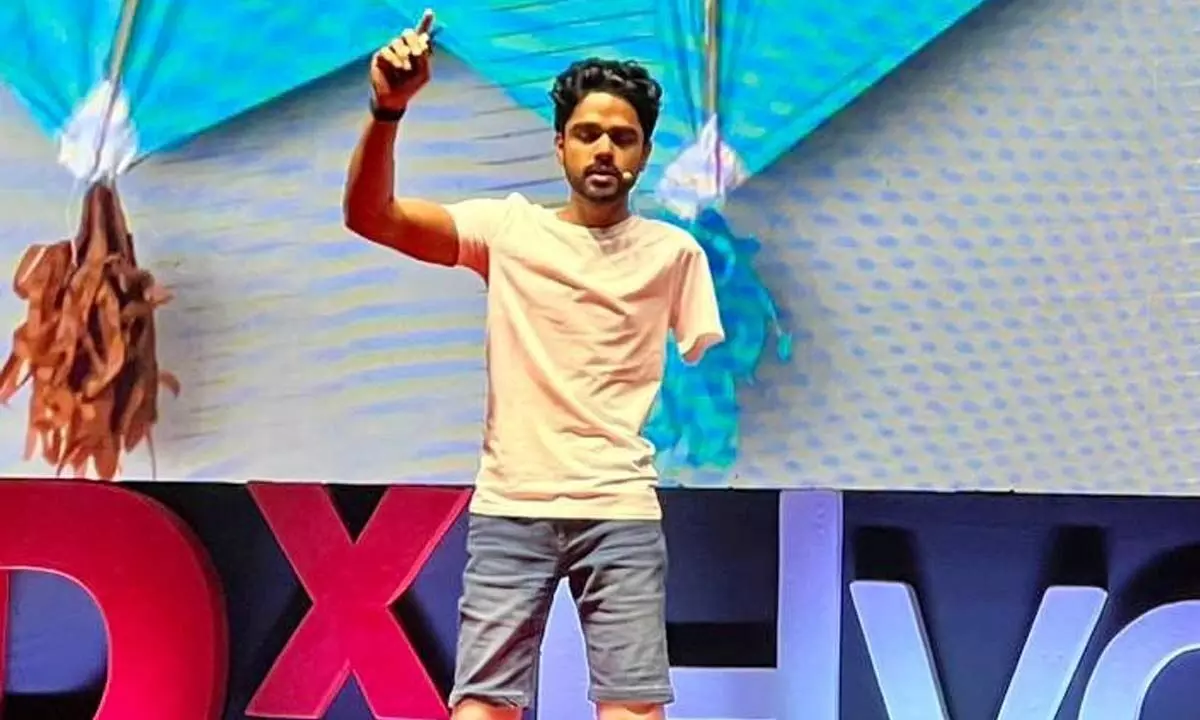It's time to make workplace more inclusive for differently-abled

It’s time to make workplace more inclusive for differently-abled
For disability-inclusion to become an undeniable reality in the world of work, massive cultural and infrastructural shifts are necessary
Ableism, or subtle and overt discrimination against and exclusion of people with disabilities remains a pervasive and deep-seated phenomenon. While mainstream culture at large directly models itself on the imagination of an able body and mind, even after years of advocacy, activism and consciousness-raising, the world of work continues to not do justice to people with disabilities. Despite policy initiatives which mandate jobs for the differently-abled, the workplace itself might be exclusionary in its material, ambient and structural foundations. To move beyond mere rhetoric for inclusion, there is a pressing need to assess and bolster our efforts towards disability-inclusion.
Surveys illustrate how disability-inclusion did not become a substantial reality despite multiple declarations in support of the cause. As per the United Nations Organization, in developing countries, 80 per cent to 90 per cent of persons with disabilities of working age are unemployed, whereas in industrialized countries the figure is between 50 per cent and 70 per cent. As per the International Disability Rights Monitor's 2005 report, in India, 74 per cent of persons with physical disabilities and 94 per cent of persons with mental retardation were unemployed. Contrasting these figures with other studies, according to a report from the Return On Disability Group, although 90 per cent of companies claim to prioritize diversity, only 4 per cent consider disability in those initiatives. These numbers demonstrate the need to move beyond talk and actualize disability-inclusion with fundamental shifts all across professional echelons.
Recruitment is the first arena that requires intervention. From the perspective of including disability, standard hiring mechanisms stand inadequate and discriminatory. For instance, as per HBR, at Microsoft, managers realized that people with autism were not getting hired despite clearly having the required knowledge and intellect. Jenny Lay-Flurrie, the company's chief accessibility officer clarified in a statement, "We discovered that the problem was the interview process, so we did away with that process entirely for candidates with autism." Microsoft instead began working with a local autism-support organization to bring in candidates for a different type of evaluation process. The assessment program involved a series of exercises designed to test teamwork and technical skills; it also provided real-time training. Lay-Flurrie continues in the same statement about how at Microsoft, "we feel confident we haven't overlooked a strong candidate simply because a common assessment practice doesn't play to their strengths." This case study reveals the necessity of reworking usual recruitment practices. In fact, just like disability studies challenges the foundational assumptions of all academic disciplines, a disability-inclusion perspective hints at reworking the workplace itself through education, sensitization and infrastructural shifts.
Starting off, ableism at the workplace manifests as commonplace assumptions about people with disabilities and widespread use of insensitive and offensive language. Any company's Diversity and Inclusion (D&I) efforts must include educating employees about disability and ways to address and collaborate with colleagues with disabilities in unproblematic ways. For instance, in an interview, American Association of People with Disabilities board member Allie Cannington remarked how able-bodied people often view disability as being inherently negative and harbour the common misconception that people with disabilities constantly need help. Similarly, the usage of phrases such as "special needs" strengthens stereotypical and patronising characterisation of employees with disability. New-age employee training must take note of these problems and sensibilise employees to be conscious of their language and behaviour vis-á-vis differently abled colleagues.
On a related note, disability-inclusion requires infrastructural intervention as well. As per expert Debra Ruh, optimal use of assistive technology devices and emerging technologies, such as artificial intelligence, the Internet of Things, virtual reality and augmented reality, can help people with disabilities engage in the workplace by creating an accessible and inclusive environment. Consulting firm Gartner claims that, "by 2023, the number of people with disabilities employed will triple due to AI and emerging technologies reducing barriers to access." The modern workplace thus needs to expand its ambits to include people with disabilities by doubling down on its technological expansion with special regard to assistive instruments. Furthermore, supporting a diverse workforce requires other infrastructural endeavours as well, such as creating an accessible worksite with disability-inclusive architecture.
On the whole, for disability-inclusion to become an undeniable reality in the world of work, massive cultural and infrastructural shifts are necessary. While the infrastructure can become the scaffolding on which inclusion efforts can thrive, a culture of consciousness is what can propel the workplace to new heights vis-á-vis equality and diversity.
(The author is Chief Impact Officer at Recykal Foundation)














